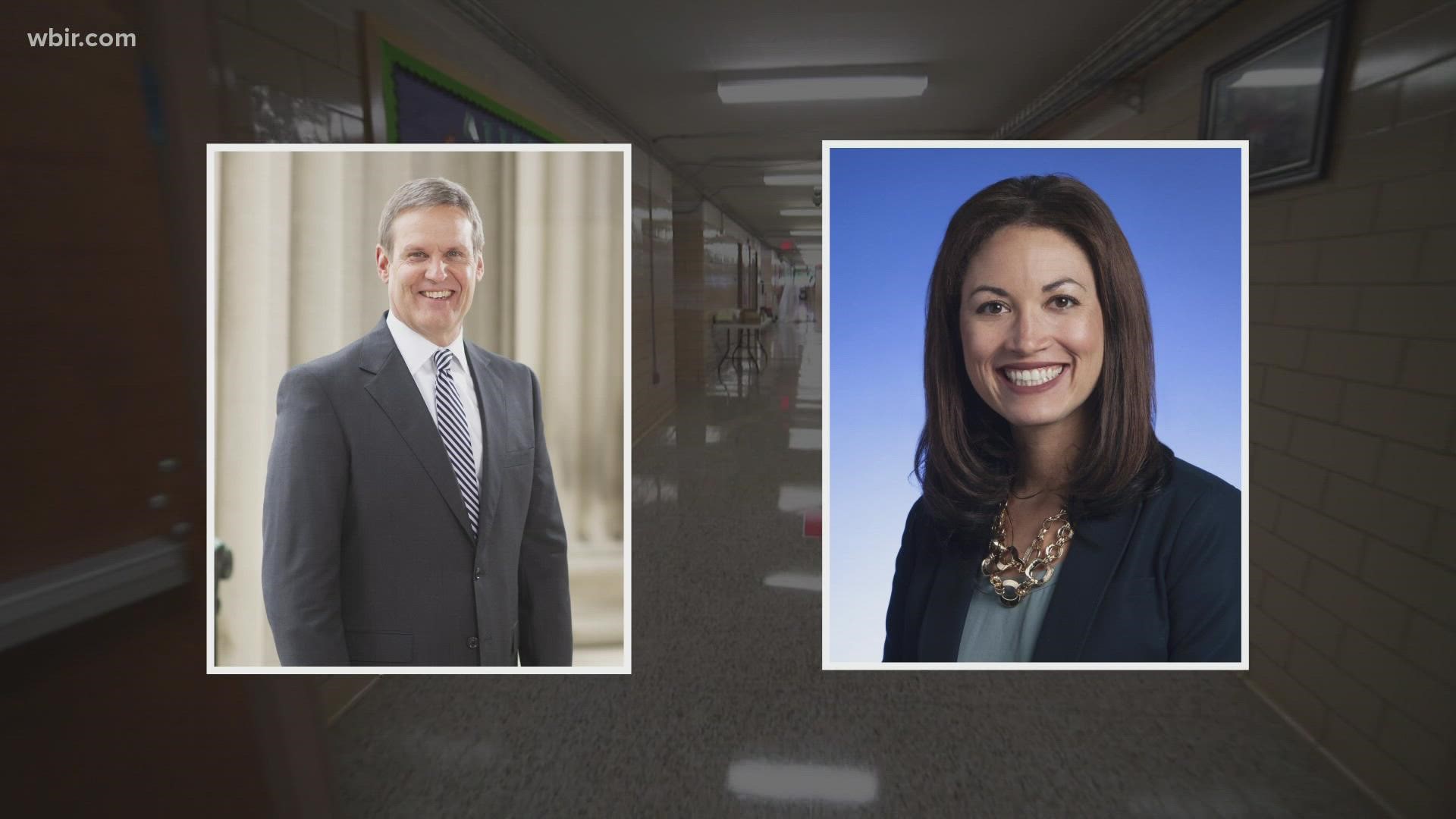CLINTON, Tenn. — Tennessee Governor Bill Lee and Department of Education Commissioner Penny Schwinn announced a new plan for funding public schools. They said the new formula is based on each individual student's needs.
Their plan is called the Tennessee Investment in Student Achievement and would replace a 30-year funding formula called BEP. On April 28, state leaders said that it passed. Governor Lee released a statement about it, available below.
“Today is a tremendous day for Tennessee students. After months of engagement with thousands of Tennesseans, our state will have a new, innovative K-12 funding formula that improves public education by putting kids first. I commend the General Assembly for their partnership and desire to move Tennessee public education to a new frontier.”
TISA will fund each school district with $6,800 of base funding for each student. On top of the base funding, the state would supplement the money based on different categories:
- Economically disadvantaged students
- Students living in areas of concentrated poverty
- Students in sparsely populated communities
- Students in small school district
- Students with unique learning needs
The program will also give additional funding to students who need literacy tutoring and for students in kindergarten through third-grade learning how to read.
"We need to invest more in our public schools in our state," said Governor Bill Lee.
Knox County Representative Gloria Johnson, a former Knox County Schools teacher, said she thinks funding based on student needs would get the state close to making public schools more equitable.
However, she also said she worries that money will go towards charter schools. Under the TISA plan, public charter schools would be funded the same way as public schools even though they generally operate through individual agreements and can teach different lessons than what public schools usually teach.
Charter schools usually do not need to follow federal regulatory restrictions in the same way public schools do, which can include federal discrimination laws and health laws, leading to concern among many advocates. They are usually owned by boards or private individuals.
"Unfortunately, it's going to begin to defund our public schools," said Rep. Johnson.
Clinton City Schools Director Kelly Johnson said she hopes this plan brings more guidance counselors, more social workers, and more mental health services to her school.
Johnson said during the coronavirus pandemic, the students in her school suffered more mental health issues.

